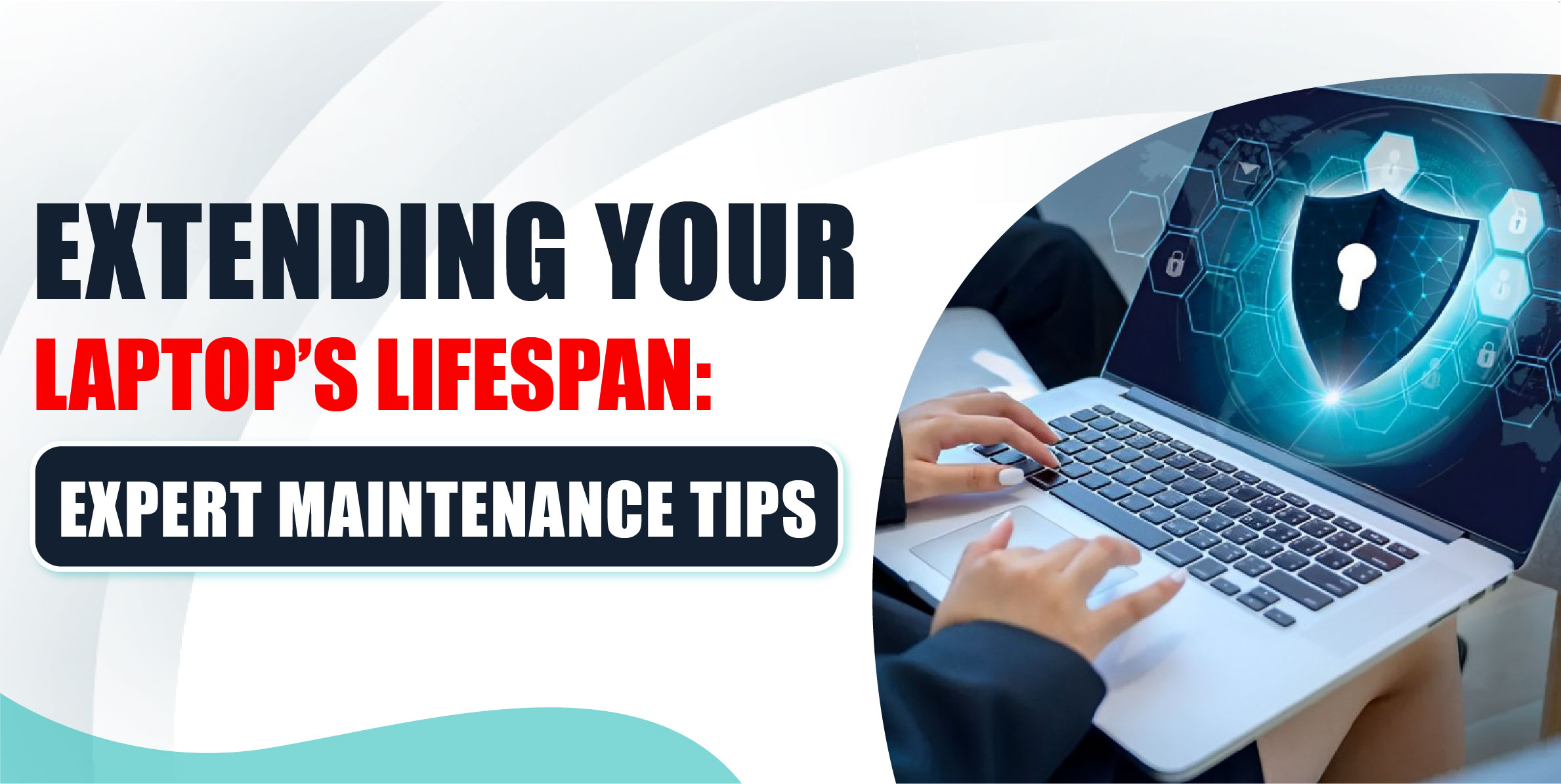
Laptops have become essential tools for both personal and professional use. From handling important work tasks to streaming entertainment and staying connected with friends, they are integral to modern life. However, like any electronic device, laptops can wear down over time.
The good news is that with the right care and maintenance, you can significantly extend the lifespan of your laptop, avoiding the need for costly repairs or replacements. Here are some practical maintenance tips from repair experts to help you keep your laptop running smoothly for years to come.
One of the simplest but most effective ways to maintain your laptop is to keep it clean. Dust and debris can accumulate inside your laptop, especially around the fan and cooling system, causing it to overheat and potentially damage internal components. Regularly cleaning the keyboard, screen, and vents can prevent this from happening.
Experts recommend using a can of compressed air to blow out dust from the vents and fans. For the keyboard, a soft cloth and mild cleaning solution will keep it free of dirt and crumbs. Avoid eating near your laptop to prevent debris from getting stuck between the keys.
Overheating is a major cause of hardware failure in laptops. Laptops generate a lot of heat, and if the cooling system is not functioning properly, this heat can damage internal components such as the motherboard, CPU, and graphics card.
To prevent overheating, always use your laptop on a hard, flat surface to ensure proper airflow through the cooling vents. Many users make the mistake of using their laptop on a bed or soft surface, which can block these vents. Investing in a cooling pad or stand can also help reduce the temperature, particularly during heavy usage like gaming or video editing.
Keeping your laptop’s software and drivers up to date is crucial for performance and security. Updates often include important bug fixes, security patches, and performance improvements that can help your laptop run smoothly.
Operating systems like Windows and macOS regularly release updates, so it’s a good idea to allow automatic updates or set reminders to check for them manually. Additionally, regularly updating your hardware drivers (such as those for your graphics card, sound card, and network adapters) will keep your laptop functioning at its best.
The battery is one of the most critical components of your laptop. Proper care can extend its lifespan, helping you avoid the need for an expensive battery replacement. To preserve battery health, avoid keeping your laptop plugged in 24/7, as this can lead to overcharging and reduce battery longevity.
Experts recommend using your laptop on battery power occasionally and allowing it to discharge before plugging it in again. Additionally, avoid exposing your laptop to extreme temperatures, as heat can significantly degrade battery life.
Laptops are portable devices, which makes them more prone to physical damage compared to desktop computers. To prevent damage, always handle your laptop with care. When transporting it, use a padded laptop bag to protect it from bumps and drops. Avoid placing heavy objects on top of your laptop or applying pressure to the screen, as this can lead to cracks or hardware malfunctions.
Be cautious when opening and closing the lid as well, as slamming it shut or opening it too forcefully can strain the hinges and damage the display.
While maintaining your laptop’s hardware is crucial, don’t forget about your data. Laptops can fail unexpectedly, leading to data loss. To avoid this, it’s important to regularly back up your files. External hard drives and cloud storage services like Google Drive or Dropbox offer reliable backup options.
Experts recommend setting up automatic backups so that your data is saved regularly without you having to remember to do it manually. This way, even if your laptop encounters an issue, your important files will remain safe.
Over time, laptops can become sluggish as they accumulate unnecessary files, apps, and programs. To keep your laptop running smoothly, it’s important to regularly clean up your storage.
Start by uninstalling programs that you no longer use. You can also use built-in tools like Windows’ Disk Cleanup or macOS’s Optimize Storage feature to clear out junk files, temporary files, and other clutter that might be slowing your laptop down.
Additionally, make sure your hard drive isn’t nearing full capacity. Aim to keep at least 15-20% of your storage free to ensure optimal performance.
By following these expert maintenance tips, you can extend the lifespan of your laptop and ensure it continues to perform well over the years. Regular cleaning, proper handling, and staying on top of software updates will help you avoid many common issues that lead to laptop failure. Just like any other investment, taking care of your laptop will pay off in the long run, saving you both time and money on repairs or replacements.